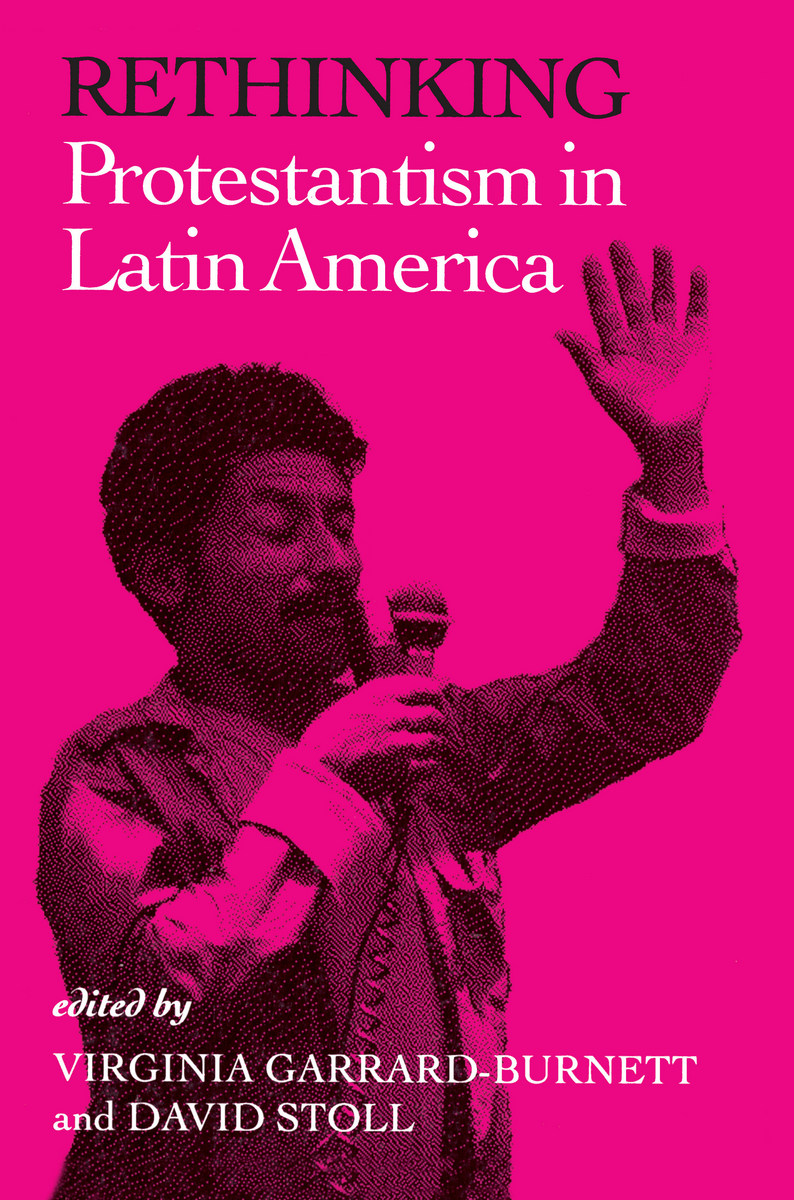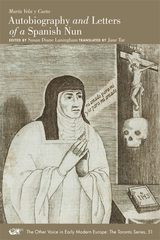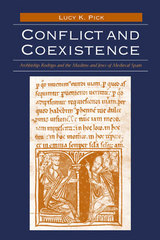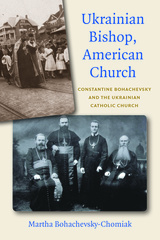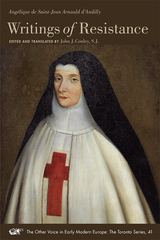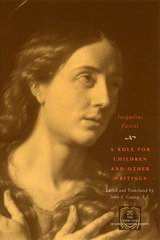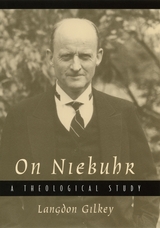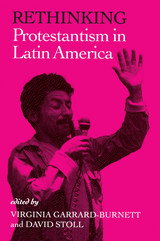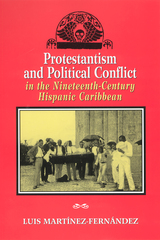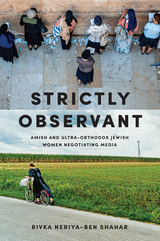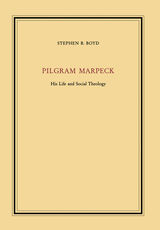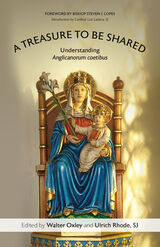Rethinking Protestantism in Latin America
Temple University Press, 1993
Cloth: 978-1-56639-102-3 | Paper: 978-1-56639-103-0
Library of Congress Classification BX4832.5.R48 1993
Dewey Decimal Classification 280.409809045
Cloth: 978-1-56639-102-3 | Paper: 978-1-56639-103-0
Library of Congress Classification BX4832.5.R48 1993
Dewey Decimal Classification 280.409809045
ABOUT THIS BOOK | AUTHOR BIOGRAPHY | REQUEST ACCESSIBLE FILE
ABOUT THIS BOOK
William J. Goode Book Award, American Sociological Association Family Section, 2000
"Path-breaking, brilliant, and a pleasure to read. The idea that women will be either career or home oriented is one that is long overdue for re-examination."
--Arlene Kaplan Daniels, Professor Emerita, Department of Sociology, Northwestern University
In American culture, the image of balancing work and family life is most often represented in the glossy shot of the executive-track woman balancing cell-phone, laptop, and baby. In Weaving Work and Motherhood, Anita Ilta Garey focuses not on the corporate executives so frequently represented in American ads and magazines but, rather, on the women in jobs that typify the vast majority of women's employment in the United States.
A sociologist, work, and family expert, Garey situates her research in the health service industry. Interviewing a racially and ethnically diverse group of women hospital workers--clerical workers, janitorial workers, nurses, and nurse's aids--Garey analyzes what it means to be at once a mother who is employed and a worker with children. Within the limits of the resources available to them, women integrate their identities as workers and their identities as mothers by valuing their relation to work while simultaneously preserving cultural norms about what it means to be a good mother. Some of these women work non-day shifts in order to have the right blocks of time at home, including, for example, a registered nurse who explains how working the night shift enables her to see her children off to school, greet them when they return, and attend school events in the way she feels "good mothers" should - even if she finds little time for sleep.
Moving beyond studies of women, work, and family in terms of structural incompatibilities, Garey challenges images of the exclusively "work-oriented" or exclusively "family-oriented" mother. As women talk about their lives, Garey focuses on the meanings of motherhood and of work that underlie their strategies for integrating employment and motherhood. She replaces notions of how women "balance" work and family with a better understanding of how women integrate, negotiate, and weave together their identities as both workers and mothers.
Breaking new ground in the study of work and family, Weaving Work and Motherhood offers new insights for those interested in sociology, gender and women's studies, social policy, child care, social welfare, and health care.
"Anita Ilta Garey carves out new terrain by unifying the study of work and family in women's lives. Rich in detail about working mothers' experiences, this book inaugurates a powerful framework for future research in family studies."
--Maxine Baca Zinn, co-editor of Women of Color in U.S. Society (Temple)
"A perceptive account, especially good at making visible the work activities and commitments of women in female-dominated and part-time positions."
--Marjorie DeVault, author of Feeding the Family: The Social Organization of Caring as Gendered Work
"This gem of a study points out the kinds of social solutions that are needed to address how to integrate daily family life with labor force participation. Using a hospital to find respondents who are employed in typically female-dominated occupations, Garey conducted in-depth interviews with women that have children about their individual work and family strategies. She dispels the myth that women choose between employment and family."
--Rosanna Hertz, author of More Equal Than Others: Women and Men in Dual-Career Marriages
"Path-breaking, brilliant, and a pleasure to read. The idea that women will be either career or home oriented is one that is long overdue for re-examination."
--Arlene Kaplan Daniels, Professor Emerita, Department of Sociology, Northwestern University
In American culture, the image of balancing work and family life is most often represented in the glossy shot of the executive-track woman balancing cell-phone, laptop, and baby. In Weaving Work and Motherhood, Anita Ilta Garey focuses not on the corporate executives so frequently represented in American ads and magazines but, rather, on the women in jobs that typify the vast majority of women's employment in the United States.
A sociologist, work, and family expert, Garey situates her research in the health service industry. Interviewing a racially and ethnically diverse group of women hospital workers--clerical workers, janitorial workers, nurses, and nurse's aids--Garey analyzes what it means to be at once a mother who is employed and a worker with children. Within the limits of the resources available to them, women integrate their identities as workers and their identities as mothers by valuing their relation to work while simultaneously preserving cultural norms about what it means to be a good mother. Some of these women work non-day shifts in order to have the right blocks of time at home, including, for example, a registered nurse who explains how working the night shift enables her to see her children off to school, greet them when they return, and attend school events in the way she feels "good mothers" should - even if she finds little time for sleep.
Moving beyond studies of women, work, and family in terms of structural incompatibilities, Garey challenges images of the exclusively "work-oriented" or exclusively "family-oriented" mother. As women talk about their lives, Garey focuses on the meanings of motherhood and of work that underlie their strategies for integrating employment and motherhood. She replaces notions of how women "balance" work and family with a better understanding of how women integrate, negotiate, and weave together their identities as both workers and mothers.
Breaking new ground in the study of work and family, Weaving Work and Motherhood offers new insights for those interested in sociology, gender and women's studies, social policy, child care, social welfare, and health care.
"Anita Ilta Garey carves out new terrain by unifying the study of work and family in women's lives. Rich in detail about working mothers' experiences, this book inaugurates a powerful framework for future research in family studies."
--Maxine Baca Zinn, co-editor of Women of Color in U.S. Society (Temple)
"A perceptive account, especially good at making visible the work activities and commitments of women in female-dominated and part-time positions."
--Marjorie DeVault, author of Feeding the Family: The Social Organization of Caring as Gendered Work
"This gem of a study points out the kinds of social solutions that are needed to address how to integrate daily family life with labor force participation. Using a hospital to find respondents who are employed in typically female-dominated occupations, Garey conducted in-depth interviews with women that have children about their individual work and family strategies. She dispels the myth that women choose between employment and family."
--Rosanna Hertz, author of More Equal Than Others: Women and Men in Dual-Career Marriages
See other books on: Church history | Hispanic & Latino Studies | Protestant churches | Protestants | Stoll, David
See other titles from Temple University Press
